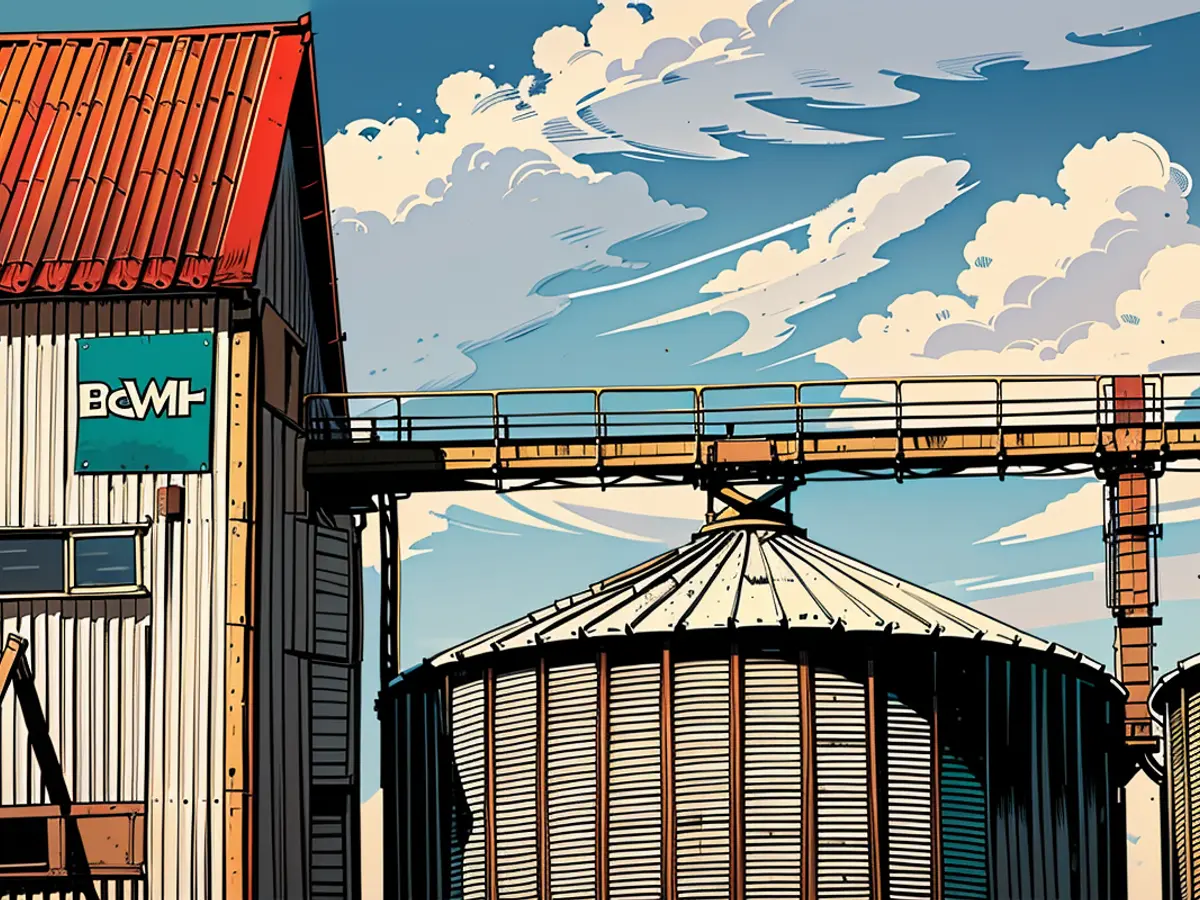Baywa is indebted by around five billion Euros
Baywa is in a deep crisis. The Munich agricultural conglomerate must commission a restructuring report. It is clear that the situation is more critical than previously assumed. The stock price has dropped by a third to 14.90 Euros, its lowest point in over 15 years. Two years ago, the stock price was still three times higher. As reported, the heavily indebted company - apparently under pressure from creditor banks - has commissioned a restructuring report to determine if Baywa is viable for restructuring.
The company speaks of a "tight financing situation." The goal of the report is a positive forecast for continuation, which is the prerequisite for extending credits. In addition, the agricultural trader has brought on board a restructuring advisor, who is reportedly below the board of directors.
"It is clear that the situation at Baywa is more critical than previously assumed," wrote the German Securities Protection Association (DSW). "The high debt is a very serious problem." Baywa CEO Markus Poellinger is currently trying to correct the debt-financed expansion course set by his predecessor Klaus Maria Lutz.
Consolidation course already announced
At the end of 2023, the company had 5.5 billion Euros in debt. With rising interest rates, this is becoming increasingly burdensome. The higher interest expenses pulled the Baywa into the red for the first time last year, as the solar trade was not running.
Poellinger had already announced a consolidation course and struck out the dividend for 2023. Now it seems that the situation has worsened. "The management expects, based on constructive talks with financing partners and the initiated measures, that the financial situation can be sustainably improved," tried to reassure the management to the investors on Friday evening.
The largest creditors of Baywa are - also part of the cooperative sector - DZ Bank, the Landesbank Baden-Württemberg (LBBW), and UniCredit, which had provided a 2 billion Euro consortium loan that falls due in September 2025. Whether it is secured with credit conditions (Covenants) that allow the banks to demand early repayment if conditions are not met, is not known.
In April, Baywa abandoned the issue of a 250 million Euro heavy bond due to a lack of demand, despite offering 6.75 percent interest. Investors were hesitant then because the company did not have a credit rating. At the end of June, Baywa paid back a "Green Bond" of over 500 million Euros as planned.
Concerns among agricultural investors
The planned sale of the trading business with solar panels and inverters could bring fresh money into the cash register and ease the most pressing financial concerns. However, this has not yet materialized because the industry is under pressure due to massive overcapacity in solar modules and a dumping strategy by Chinese competition.
From the originally anticipated sales revenue of 2.2 to 2.4 billion Euro, Baywa is estimated by its own assessment to have to make significant cuts if it wants to sell the business. The solar trade belongs to the Baywa r.e., the renewable energy daughter company built by Lutz, where the former Credit-Suisse daughter EIP entered for around half a billion Euro with 49 percent in 2021. Their wind and solar projects are lucrative but also tie up a lot of capital.
The Vice President of the DSW, Munich lawyer Daniela Bergdolt, is particularly concerned about investors from agriculture. "Baywa is a special company: Many farmers are both customers and shareholders. The Baywa stock is often an important part of their retirement savings."
The largest shareholder is the Bayerische Raiffeisen-Beteiligungs-AG with 33.8 percent, followed by the Volks- and Raiffeisenbanks of the state. The supervisory board chairman is Gregor Scheller, who is retiring as chairman of the Genossenschaftsverband Bayern. The Austrian Raiffeisen-Agrar Invest holds 28.1 percent of the shares.
The drop in Baywa's stock prices, reaching its lowest point in over 15 years at 14.90 Euros, has raised concerns among agricultural investors due to its impact on their retirement savings, as many farmers are both customers and shareholders in the Munich-based agricultural conglomerate. The restructuring report commissioned by Baywa, in an attempt to determine its viability for restructuring under pressure from creditor banks, could potentially impact the economy in Munich and beyond, as the company's struggles in the solar trade sector have led to a significant debt burden.








